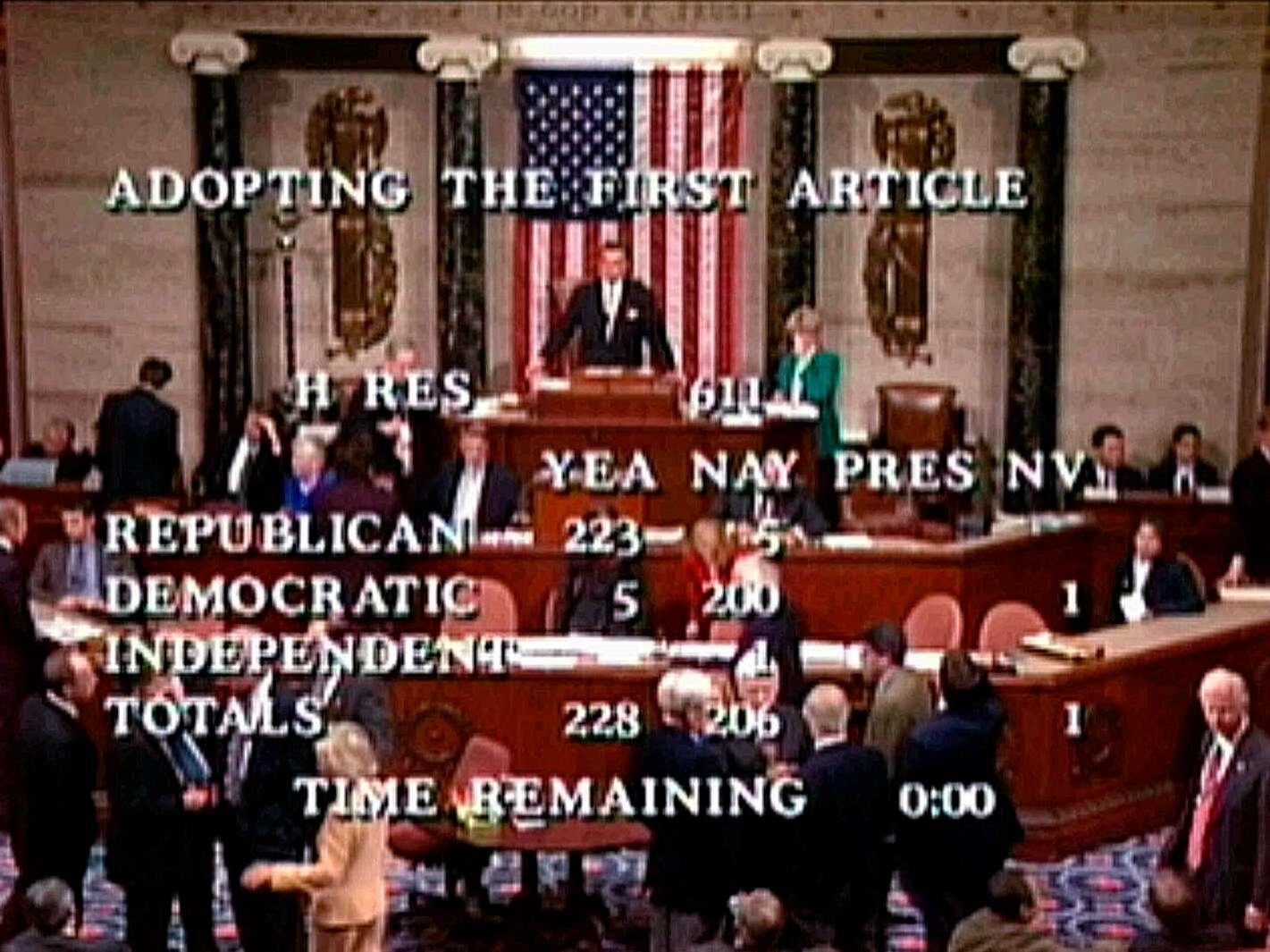Bill Clinton impeachment: Why was the former president impeached and what did the Senate do?
President’s own lawyers said his actions were 'morally reprehensible' but not impeachable

The US Senate is considering the second impeachment trial of Donald Trump, making him the third president in American history to face such judgment and the first to be impeached twice.
The last time another president faced impeachment it was Democrat Bill Clinton’s actions up for judgement in 1998, yet another time of incredible division in US politics — not unlike the division seen in the modern political landscape.
As the Senate argues over former-president Trump’s role in inciting the 6 January insurrection at the US Capitol, here’s a look back at the Clinton scandal that consumed the country more than 20 years ago.
What was the scandal?
Mr Clinton’s presidency was plagued with repeated attacks from Republicans, including independent counsel Kenneth Starr, a well-regarded lawyer who made a name for himself in the 1990s by investigating the Clinton administration.
Mr Starr’s investigation initially centred upon pre-presidency financial dealings by Mr Clinton. That investigation primarily looked into potential wrongdoing by Mr Clinton and his wife, Hillary Clinton, in real estate developments related to Whitewater Development Corporation in Arkansas — but he was able to find no evidence of wrongdoing.
Accusations of sexual harassment levied against Mr Clinton by Paula Jones in Arkansas, however, also caught Mr Starr’s eye. During that case, former White House intern Monica Lewinsky testified that she had not had a sexual relationship with the president, and then Mr Clinton himself testified that they had not had a sexual relationship.
With the assumption that Mr Clinton had perjured himself in that case, Mr Starr launched an investigation. Ultimately, after offering Ms Lewinsky immunity to testify against that she had actually had a sexual relationship with Mr Clinton. After an evasive interview with Mr Starr’s investigators, Mr Clinton also admitted on television to the affair.
What happened next?
Mr Starr submitted his report to the House Judiciary Committee, claiming that he had evidence of 11 impeachable offences. Among those was perjury — which is clearly a crime.
At the time, the House was controlled by Republicans with 228 votes to Democrats’ 206. The process was begun on 8 October 1998, and a formal vote in the House was held on 19 December of that year, making Mr Clinton just the second president in American history to be impeached.
What did the Senate do?
As these charges were considered by Congress, the president’s own lawyers had argued that Mr Clinton’s acts were “morally reprehensible” but not impeachable. House lawyers had argued Mr Clinton deserved to be removed from office because he had committed perjury — a clear crime — and obstruction.
Under the United States Constitution, an impeachment vote in the House is followed up with a trial in the Senate. The Senate, after the 2018 midterms — which took place right in the middle of the impeachment process in the House — remained with 45 Democrats and 55 Republicans.
In the end, Mr Clinton was acquitted on both articles of impeachment he faced, after each failed to gain the 67-vote threshold outlined in the Constitution to remove a president. The first, for violating his oath of office through perjury, received 45 votes in favour of removal and 55 in favour of acquittal. The second, for obstruction, saw a 50-50 split.

What happened to Mr Clinton next?
Mr Clinton went on to finish off his second term as president, and then proceeded into a very lucrative post-presidency career giving speeches that has made him wildly wealthy.
His reputation in the US emerged mostly in-tact in the aftermath of the impeachment effort, and it is unclear if the issue had any significant impact at the ballot booth (the 2018 midterms saw Republicans retain control of both the House and Senate. The 2000 presidential election did not focus particularly on Mr Clinton’s sex scandal, as he was not on the ballot).

Has anyone been removed from office after impeachment?
No. Before Mr Clinton only president Andrew Johnson had been formally impeached, in 1968 for “high crimes and misdemeanours” after he removed Edwin Stanton from his post as secretary of War (a position that no longer exists). Ultimately, Mr Johnson was also acquitted by the Senate, establishing an important precedent for the separation of powers between the legislative and executive branches of the US federal government.
Richard Nixon, who resigned from office in August 1974 as Congress investigated his alleged misdeeds during the Whitewater scandal, was not actually impeached by the House because his resignation had left the issue moot.
Join our commenting forum
Join thought-provoking conversations, follow other Independent readers and see their replies
Comments
Bookmark popover
Removed from bookmarks